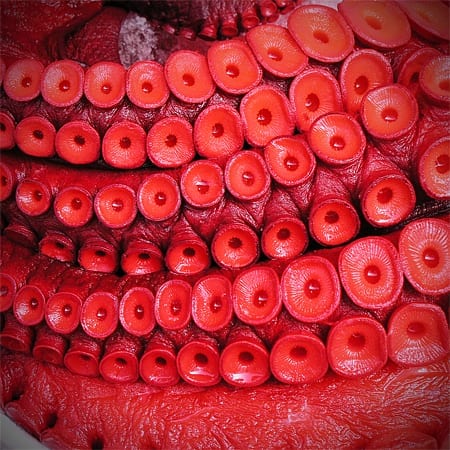By Daniel de la Calle
Distilled from the World Wide Web for you:
-The Plymouth Marine Laboratory has launched a new short film on Ocean Acidification. Its title is “Ocean acidification: Connecting science, industry, policy and public”. Here it is
-Folks at United By Blue are organizing a cleanup on Saturday June 11th in the city of Baltimore. On this occasion the cleanup area will be at the confluence of the Armistead Run and the Herring Run main stem. If you live in the vicinity you might want to devote some of your time to this very worthy and rewarding cause. It is expected to run from 10am until 3 pm and people will meet at Alricks Way, near the intersection between Md Rt. 40 Pulaski Hwy and I-895 (adjacent to the Armistead Gardens neighborhood).
–Science Watch has published a list with the top 30 research organizations and universities in the field of oceanography based on citations per paper to highly cited papers published over the past ten years (2000-2010).
Here are the first ten, the country of origin, with the number of highly cited papers (blue), cites (green) and cites per paper (red).
1 University of Otago, New Zealand 11–1,628–148
2 MIT, USA 12–1,727–144
3 NOAA, USA 23–3,092–134
4 Rutgers State University, USA 10–1,268–126
5 University of Washington, USA 21–2,662–126
6 University of East Anglia, UK 11–1,367–124
7 National Center for Atmospheric Research, USA 10–1,147–114
8 Plymouth Marine Laboratory, UK 15–1,699–113
9 Princeton University, USA 10–1,097–109
10 University of Southern California, USA 10–1,073–107
In terms of number of highly cited papers, as well as total citations, the Woods Hole Oceanographic Institute comes first, followed by the U.S. National Oceanic and Atmospheric Administration, and the University of California San Diego (by papers) or the University of Washington (by citations). Ken Buesseler of the Woods Hole Oceanographic Institution, whose specialty is marine geochemistry, is the researcher with the greatest number of highly cited papers (10) as well as total citations to his highly cited papers (1,558). You may review the whole list in the Science Watch link above.
– Young Kunal Sangani and research partner Mishka Gadwani are two students from Fayetteville-Manlius High School in Syracuse (NY) that just won first place this past week at the Intel International Science and Engineering Fair, the world’s largest international pre-college science competition. Their project is titled “The Effects of Ocean Acidification on Oil Spills on Emiliania Huxleyi Transparent Exopolymer Particles” and it centers on a new method for removing oil particles from the water using phytoplankton. Research came with a different result than expected: although they were at first set out to show how phytoplankton are harmed by oil spills in the Gulf of Mexico, Kunai and Mishka actually uncovered how phytoplankton “assist” in removing oil from the ocean by producing a sticky chemical that forms a network in the water and traps the oil. The network subsequently floats to the surface, where it can be collected.
There is some prize money, but much more importantly they get to have an asteroid named after each one of them and that, like their work and dedication at such an early age, is priceless.
-Japan is easy to like: an exotic fascinating culture that praises artistic refinement, shows deep appreciation for craftsmanship, for work that aims for perfection, a nation with a religion that reveres nature… Still, the line that separates love and passion from obsession and destruction is thinner that a shoji door and there are times when my own admiration for Japan is put to a serious test. I am not talking about the whales now, nor about those insatiable tropical lumber imports, I am talking tuna. Not knowing how much of it is rumors, a proven fact is that Mitsubishi Corporation has managed to control around 40% of the world tuna catch, while the part of the rumors goes that the company could be storing deep frozen stock of the oishii bluefin tuna in preparation for when it becomes (maybe by 2012) commercially extinct. Being such a Machiavellian proposition, we have all reasons to think it is true. For this, my friends, is exactly the problem, that many of us simply cannot drum into our heads that some very very very good business ideas are actually miserable ideas.

Dyed tako at a Tokyo street market, a bunch of years ago.


